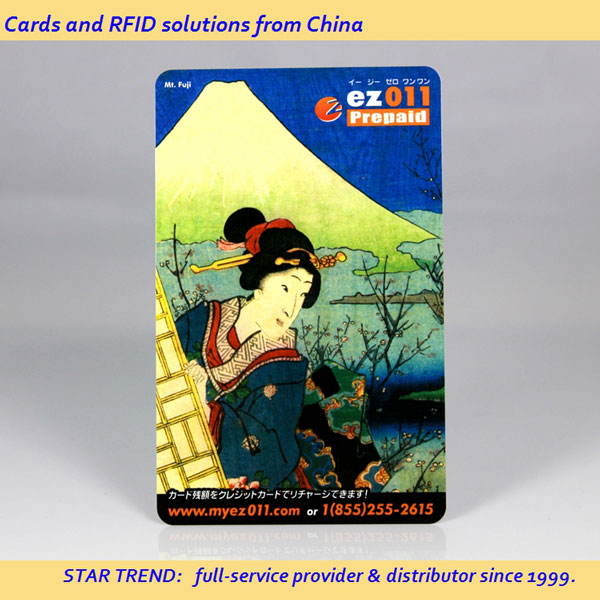In fact, RFID is ubiquitous in smart cities, so when we look at the city underneath with such memories and imaginations, it seems tedious and extremely inefficient.
But is it really so? Smart city is really just a phantom that emerges in the mind. Is it still an unattainable relationship with reality? If you can calm down and think about it, you will find that the scenes of smart cities are already all around us. For example, when we turn on the mobile phone to check how long the bus will arrive at the station, we use the map APP to instantly generate a route to the destination, and use the mobile phone equipped with NFC function to take the bus and subway. It can be seen that in the real smart city scene, many places have the application of RFID, NFC, wireless network and other information technology, and RFID is also one of the most important methods of data collection in the city.
Many years ago, news of manhole cover theft was reported from time to time in major cities across the country. Due to the lack of effective real-time monitoring and management methods, a large number of manhole covers in the city provided opportunities for criminals. According to statistics from a Beijing media in 2006, the number of manhole covers lost in Beijing exceeded 10,000 in a year. The stolen manhole covers not only cause damage to municipal management and bring financial and economic losses, but also pose a great threat to the personal safety of vehicles and pedestrians.
Nowadays, various kinds of Internet of Things technologies represented by RFID technology continue to enter the smart city management system. The digital management of city street manhole covers is an example. After the manhole cover is equipped with an RFID module, it turns into an intelligent manhole cover, which can monitor the status of the manhole cover, the ownership unit of the manhole cover, and the position of the manhole cover in real time. Smart manhole covers equipped with RFID technology are a microcosm of the transformation of urban infrastructure from extensive management to refined management, which realizes effective supervision of social resources and effectively protects the personal safety of the people.
With the rapid development of urban construction, the management and control methods of construction sites have also been continuously optimized, and more efficient information-based construction methods have received special attention from relevant organizations. As a result, the combination of RFID and engineering construction has become more and more common. It has realized the automation of the construction process and real-time accurate data collection. The RFID chip is attached to the inner side of the helmet, and the identity information and location information of the construction personnel are written into it. The complete set of intelligent management system provides data support for labor dispatch and safety management, which can greatly improve the efficiency of engineering operations. In addition, by carrying RFID technology, it can also realize the traceability management of building materials such as steel plates and steel components, and build a real-time and dynamic collection of smart construction site platforms.
In recent years, with the continuous development and evolution of various technologies, the combination of RFID and BIM, sensing, GIS, AR/VR and other technologies has been used more and more in construction scenarios, which has also enabled RFID to be used in more and more links.
With the continuous increase in the number of domestic cars, road congestion and traffic violations are common in daily life. According to statistics disclosed by the Ministry of Public Security, as of June 2020, the number of motor vehicles in the country has reached 360 million, of which 270 million are small cars. In the face of huge traffic pressure, urban vehicle management problems have become increasingly prominent, and more and more cities have begun to promote the popularization of RFID technology in traffic management.
In order to solve the severe urban traffic problems, the transportation department began to promote the popularization of electronic license plates. RFID electronic license plate breaks through the bottleneck of the original traffic information collection technology, realizes the classified collection and accurate collection of vehicle traffic information, and then realizes the precise management of vehicles. The application scenarios of electronic license plates are very wide, and they can be used for traffic management vehicle management, urban traffic management, environmental protection restrictions, road planning support, and commercial applications involving car-related micropayments. It is foreseeable that in the near future, motor vehicles will gradually use electronic license plates with electronic tags, and the management methods based on electronic license plates will also develop and evolve. In recent years, with the rapid rise of online shopping lifestyles, the scale of domestic logistics has grown rapidly over the years, and the low operating efficiency of traditional logistics systems has become unsustainable. At present, my country's express delivery business volume has surpassed that of developed economies such as Europe, America and Japan, and has been ranked first in the world for many years.
There is a high degree of compatibility between RFID technology and logistics scenarios. In the daily management of the warehouse, the cargo administrator can use RFID technology to realize real-time tracking of the goods, including the source, whereabouts, and inventory quantity of the goods can be collected in time, greatly improving the efficiency of inventory supply and the efficiency of goods turnover. In the distribution process, the use of RFID technology to collect logistics, information flow, and capital flow in a timely manner not only reduces the error rate of goods distribution, but also greatly improves distribution efficiency. Due to the huge scale of domestic logistics, the efficiency improvement after the introduction of RFID is very obvious. There are still many innovations in the logistics field that can be tapped.
 The Advantages of RFID Technology in Libraries
The Advantages of RFID Technology in Libraries RFID Cards Campus Card Shows the Trend of Educational Modernization!
RFID Cards Campus Card Shows the Trend of Educational Modernization! Application of RFID Handset in Store
Application of RFID Handset in Store Technical Features of Contactless IC Card
Technical Features of Contactless IC Card What are the General Identification Methods of the Access Control System?
What are the General Identification Methods of the Access Control System? Introduction of Various Cards on the Market
Introduction of Various Cards on the Market



